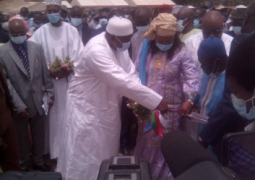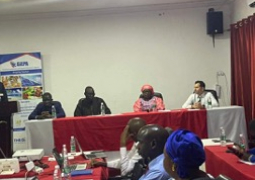"Regulations on campaign donations and spending by candidates are virtually non-existent. Parties and candidates may receive financial contributions from various sources. Anonymous donations are not banned while the Elections Act expressly prohibits from foreign and corporate sources," the report states.
"Any contributions to contestants do not have to go through the banking system or a dedicated bank account and there are no reporting or disclosure obligations."
"No ceilings apply on donations or campaign expenditures. No public funding is available to political parties while the latter are required to publish their annual audited accounts and declare to the IEC or the public their revenues, assets, and their sources only."
"Whereas this could enhance transparency and accountability, there is no publication requirement or sanctioning of illicit campaign funding."
"Scattered provisions on corrupt practices and prohibitions of use of state resources are to be found in the Elections Act and the Criminal Code. Establish a legal framework and independent oversight body to regulate and oversee political/campaign finance to enhance transparency and accountability. Introduce periodic auditing, reporting, and publishing obligations for political parties, and rules for contestants during electoral periods (ceilings on donations, expenditures, interim and final reporting, etc.)."
"The Gambia ratified the UN Convention against Corruption (UNCAC 1) in 2015, and an anticipated Anti-Corruption Bill was undergoing legislative scrutiny at the time of writing."
The report finalised on this matter that "the lack of both comprehensive legal provisions and of an oversight body mandated with clear monitoring and enforcement fell short of restraining the undue impact of money in the electoral process and ensuring a level playing field amongst contestants."



